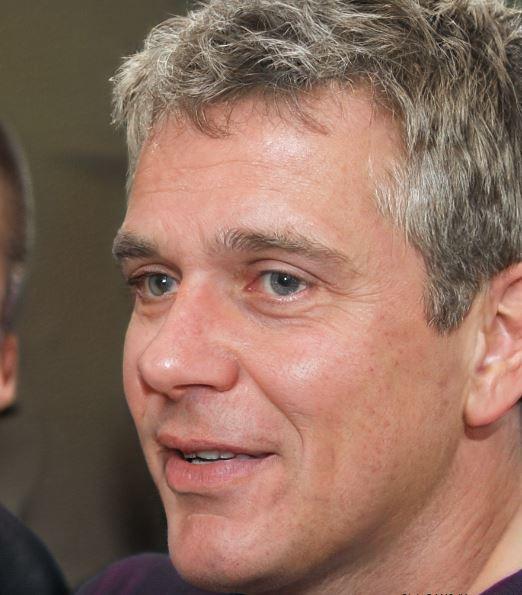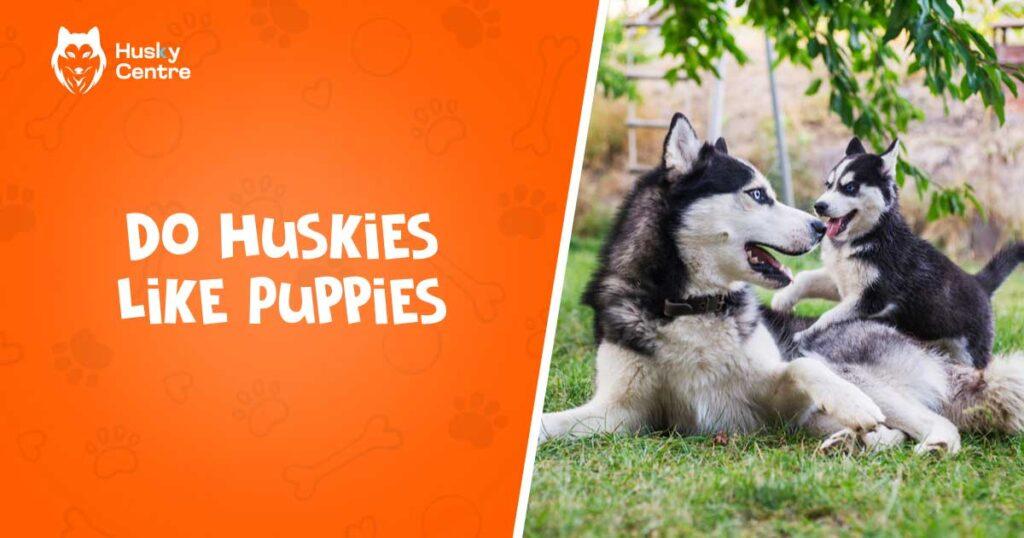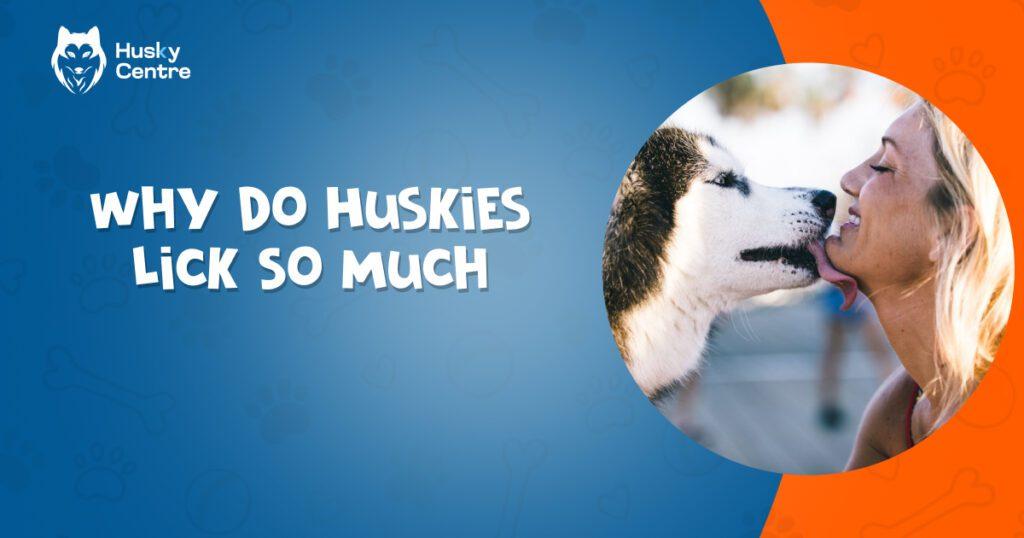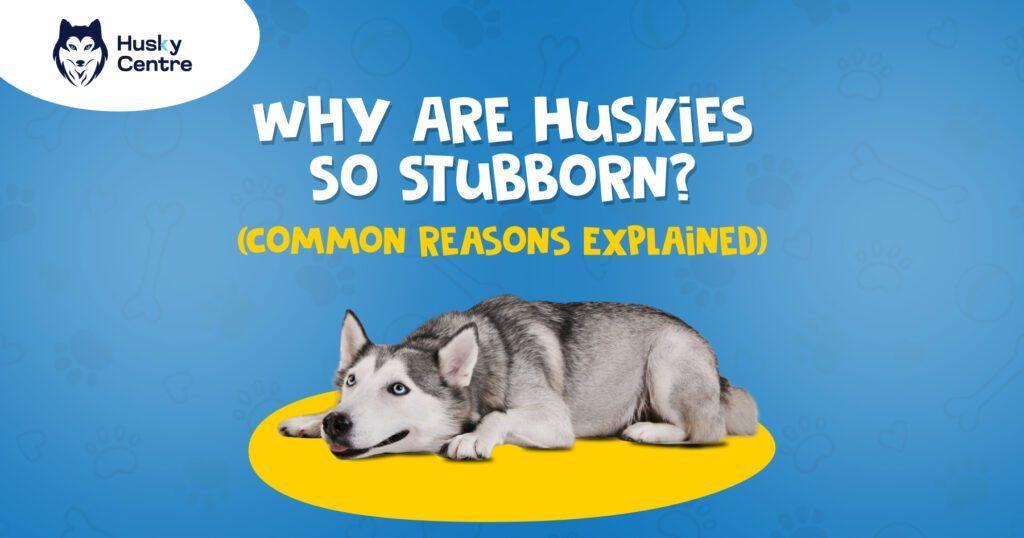Huskies generally like puppies. Their social and friendly nature helps them get along well with younger dogs.
Huskies are known for their pack mentality and social behavior. They often enjoy the company of other dogs, including puppies. Their playful and energetic nature makes them excellent companions for younger dogs. Ensuring proper socialization from an early age helps maintain a harmonious relationship.
Introducing a new puppy to a husky should be done gradually to ensure a smooth transition. Observing their interactions and providing positive reinforcement promotes a healthy bond. Huskies, with their affectionate and friendly disposition, usually adapt well to new puppies. Their ability to form strong bonds with other dogs makes them a great choice for multi-dog households.
Huskies’ Social Nature
Huskies are known for their friendly and social nature. They are pack animals who thrive on interaction and companionship. This makes them particularly interesting when it comes to their behavior around puppies. Understanding a Husky’s social nature helps us see how they interact with younger dogs.
Pack Mentality And Interaction With Puppies
Huskies have a strong pack mentality. They are used to living in a group and cooperating with other dogs. This pack behavior influences their interactions with puppies. Here are some key points to consider:
- Hierarchy: Huskies often establish a social order. Puppies may need to find their place in this hierarchy.
- Protection: Adult Huskies can be protective of puppies. They may keep an eye on them and ensure their safety.
- Playfulness: Huskies are playful by nature. They often enjoy engaging in play with puppies, which helps in bonding.
- Teaching: Older Huskies may teach puppies important social skills. This includes how to behave within the pack.
Here is a table summarizing these interactions:
| Interaction | Description |
|---|---|
| Hierarchy | Puppies find their place in the pack. |
| Protection | Adult Huskies ensure the safety of puppies. |
| Playfulness | Engaging in playful activities for bonding. |
| Teaching | Older Huskies teach social skills to puppies. |
How Huskies Treat Younger Dogs
Huskies generally treat younger dogs with a mix of curiosity and care. They often exhibit behaviors that show they are looking out for the puppies:
- Sniffing: Huskies may sniff puppies a lot. This helps them get familiar with the new member.
- Nudging: A gentle nudge encourages puppies to play or explore.
- Watching: Adult Huskies watch puppies as they play, ensuring they are safe.
- Correcting: If a puppy behaves inappropriately, an older Husky may correct it gently.
These actions help build a bond between the Husky and the puppy. It also helps puppies learn how to behave within the pack. The social dynamics are fascinating to observe:
- Curiosity: Puppies are new and interesting, so Huskies often show curiosity.
- Care: They exhibit caring behavior, ensuring the puppies are safe and happy.
- Encouragement: Huskies encourage puppies to explore and play, aiding their development.
Overall, Huskies’ interactions with puppies are characterized by a mix of playful and protective behaviors. This balance helps puppies grow into well-adjusted dogs.
Introducing A Puppy To Your Husky
Huskies are known for their friendly and energetic nature. Introducing a puppy to your Husky can be a joyful experience if done right. Many Husky owners wonder if their adult dogs will accept a new puppy. The key is proper introduction and ensuring positive interactions. This blog post will guide you on how to introduce a puppy to your Husky.
Proper Introduction Techniques
Introducing a puppy to your Husky requires careful planning. Proper introduction techniques are essential to ensure both dogs feel comfortable. Here are some steps to follow:
- Neutral Territory: Introduce your Husky and the puppy in a neutral area, like a park. This prevents territorial behavior.
- Controlled Environment: Use leashes during the first meeting. This allows you to control both dogs and avoid aggressive behavior.
- Short Meetings: Keep the initial meetings short. Gradually increase the time they spend together.
- Positive Reinforcement: Reward both dogs with treats and praise. This creates a positive association with each other.
Creating a positive first impression is crucial. Here is a table summarizing the steps:
| Step | Description |
|---|---|
| Neutral Territory | Introduce in a park or neutral area. |
| Controlled Environment | Use leashes to control the dogs. |
| Short Meetings | Start with brief encounters. |
| Positive Reinforcement | Use treats and praise. |
Ensuring Positive Interactions
Ensuring positive interactions between your Husky and the new puppy is essential for a harmonious relationship. Here are some tips to help:
- Supervised Playtime: Always supervise their interactions. This helps prevent any rough play or misunderstandings.
- Separate Spaces: Provide separate spaces for each dog. This gives them time to relax and reduces stress.
- Equal Attention: Give both dogs equal attention. This prevents jealousy and promotes bonding.
- Training Sessions: Engage in joint training sessions. This helps both dogs learn to follow commands together.
Maintaining a positive environment is key. Here is a summary:
| Tip | Description |
|---|---|
| Supervised Playtime | Monitor their interactions. |
| Separate Spaces | Provide individual areas. |
| Equal Attention | Ensure both dogs feel loved. |
| Training Sessions | Train them together. |
Following these techniques ensures a smooth introduction and fosters a positive relationship between your Husky and the new puppy.
Benefits Of Having A Husky And A Puppy Together
Huskies are known for their friendly and social nature. Many owners wonder if huskies enjoy having puppies around. The answer is yes! There are many benefits to having a husky and a puppy together. They can provide each other with companionship, help each other learn social behaviors, and much more.
Companionship And Playtime
Huskies are pack animals, so they thrive in the company of other dogs. Having a puppy can be a great source of companionship for a husky. They can keep each other entertained and reduce loneliness. Here are some benefits of their companionship:
- Reduces Separation Anxiety: When huskies have a puppy friend, they are less likely to feel anxious when left alone.
- Increases Activity Levels: Huskies and puppies love to play. They will chase each other, wrestle, and have fun together. This keeps them physically active and healthy.
- Improves Mental Stimulation: Playing with a puppy can keep a husky’s mind sharp. They will engage in various games and activities that challenge their brains.
To illustrate the benefits, here’s a simple table:
| Benefit | Description |
|---|---|
| Companionship | Provides emotional support and reduces loneliness. |
| Playtime | Keeps both huskies and puppies physically active and entertained. |
| Mental Stimulation | Engages their brains with various games and activities. |
Learning Social Behaviors
Another significant benefit is the opportunity to learn social behaviors. Huskies and puppies can teach each other important social skills. This learning process is crucial for their overall development. Here are some ways they learn together:
- Communication Skills: Huskies and puppies use body language and sounds to communicate. Observing and interacting with each other helps them understand these cues better.
- Establishing Boundaries: Through play, they learn what behaviors are acceptable. A husky might gently correct a puppy’s behavior, teaching them important social boundaries.
- Building Confidence: Puppies often mimic the actions of older dogs. A confident husky can help a shy puppy become more outgoing and self-assured.
These skills are essential for harmonious living. They can also help them interact better with other dogs and humans. Here’s a quick summary:
| Social Behavior | Impact |
|---|---|
| Communication Skills | Improves understanding of body language and sounds. |
| Establishing Boundaries | Teaches acceptable behaviors and social rules. |
| Building Confidence | Helps shy puppies become more outgoing. |
In summary, having a husky and a puppy together can be incredibly rewarding. They provide each other with companionship, enrich playtime, and learn essential social behaviors. This relationship benefits both dogs and enhances their quality of life.
Frequently Asked Questions
Do Huskies Get Along With Puppies?
Huskies generally get along well with puppies. They are known for their friendly and social nature. Early socialization is key for a smooth relationship.
How To Introduce A Puppy To A Husky?
Introduce a puppy to a husky gradually. Supervise their interactions and provide positive reinforcement. This helps build a positive bond.
Are Huskies Protective Of Puppies?
Huskies can be protective of puppies. They have strong pack instincts. Proper training enhances their protective nature.
What Are Husky-puppy Play Behaviors?
Huskies and puppies often engage in playful behaviors. They may chase, wrestle, and nibble gently. Supervision ensures safe play.
Conclusion
Huskies generally enjoy the company of puppies. Their social nature and playful energy make them great companions. Proper introductions and supervision ensure a positive relationship. Understanding their behavior and needs helps foster a harmonious bond. Embrace the joy of watching your husky and puppy grow together.


Meet Jarred, the heart and soul behind HukyCentre. With a deep affection for furry friends, he pours his passion into every word he writes. His genuine love for dogs shines through in his engaging and informative content. As a dedicated dog enthusiast, Jarred’s goal is to share valuable insights and tips that resonate with fellow dog lovers. Join Jarred on the journey as he celebrates the joy and companionship that dogs bring into our lives.



